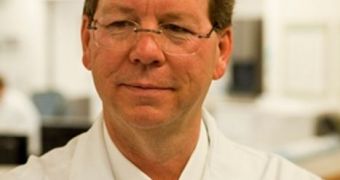A team of experts from the University of California in Los Angeles (UCLA) say that the root cause of a devastating condition called hemimegalencephaly is a series of mutations that occur within three genes. What makes this disease even worse is the fact that it mostly affects children.
It manifests itself through the malformation of half of the brain. The diseased portion is significantly larger than the normally developed half, and the only treatment that surgeons can apply at this point is disconnect and remove the affected region.
Even with the current discovery, researchers are not sure that they've discovered everything there is to know about the factors that work together to cause the disease. However, they are sure that these genetic mutations play a very important role in the process.
All of the three genes affected by the mutations are involved in regulating the size and proliferation patterns of cells in the brain. The type of changes they undergo are called de novo somatic mutations, and they only affect brain cells.
Hemimegalencephaly is not transmitted by parents, researchers say. The condition is extremely rare, but its consequences are oftentimes fatal to patients. The UCLA team is not convinced that their work will provide a complete cure, but hope that methods to slow down the disease's progression will be developed as a direct result.
“We found mutations in a high percentage of the cells in genes regulating the cellular growth pathways in hemimegalencephaly,” explains University of California in San Diego (UCSD) School of Medicine professor of neurosciences and pediatrics, Dr. Joseph G. Gleeson.
“These same mutations have been found in various solid malignancies, including breast and pancreatic cancer. For reasons we do not yet understand, our patients do not develop cancer but rather this unusual brain condition,” he adds.
“Either there are other mutations required for cancer propagation that are missing in these patients, or neurons are not capable of forming these types of cancers,” the expert goes on to say.
He was a co-senior author of a new paper detailing the findings, which is published in the June 24 online issue of the top journal Nature Genetics. The other co-senior author was Dr. Gary W. Mathern, who holds an appointment as a professor of neurosurgery at the UCLA Mattel Children's Hospital.
He is one of the very few doctors in the United States that specializes in hemispherectomy surgery, which are performed in order to remove half of the brain. The procedure is used to treat hemimegalencephaly and severe epilepsy.

 14 DAY TRIAL //
14 DAY TRIAL //